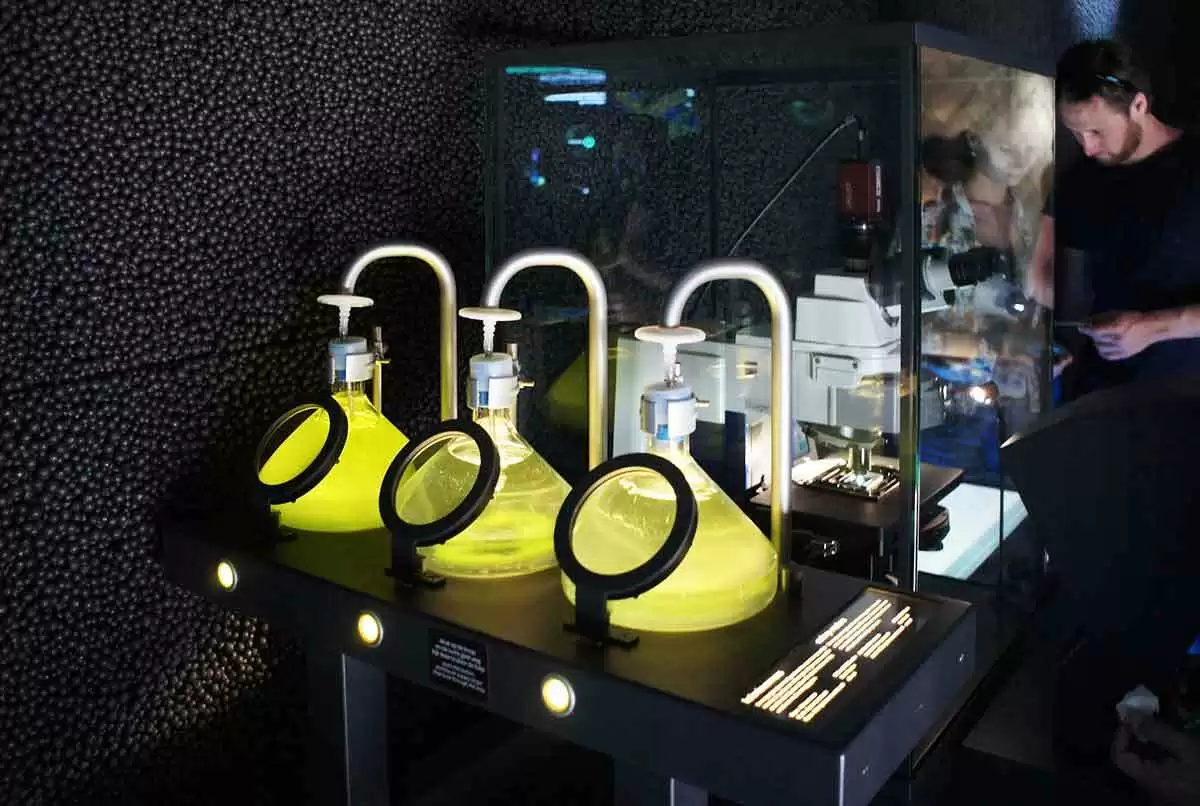-
Welcome to Celiac.com!
You have found your celiac tribe! Join us and ask questions in our forum, share your story, and connect with others.
-
Celiac.com Sponsor (A1):
Celiac.com Sponsor (A1-M):
-
Get Celiac.com Updates:Support Celiac.com!
Search the Community
Showing results for tags 'exposure'.
-
09/18/2023 - Vomiting and nausea are considered common symptoms related to gluten ingestion in treated celiac disease. However, the overall rates and associated factors of these symptoms after chronic gluten exposure, and acute re-exposure during gluten challenge, remain poorly understood. A team of researchers recently set out to explore the rates and factors associated with vomiting and nausea in individuals with celiac disease, both at the time of diagnosis and during gluten challenges. The research team included Iida Ahonen, Pilvi Laurikka, Sara Koskimaa, Heini Huhtala, Katri Lindfors, Katri Kaukinen, Kalle Kurppa, and Laura Kivelä. They are variously affiliated with the Celiac Disease Research Center, Faculty of Medicine and Health Technology, Tampere University, Tampere, Finland; the Department of Internal Medicine, Tampere University Hospital, Tampere, Finland; the Tampere Center for Child, Adolescent and Maternal Health Research, Tampere University and Tampere University Hospital, Tampere, Finland; the Faculty of Social Sciences, Tampere University, Tampere, Finland; and the University Consortium of Seinäjoki, Seinäjoki, Finland. For their study, the researchers collected medical data from 815 adult celiac disease patients at the time of their diagnosis, and an additional 74 patients underwent a three-day gluten challenge. Here are the team's key findings: At The Time of Celiac Disease Diagnosis About one in three patients presented with vomiting at the time of their celiac disease diagnosis. These patients were less likely to have been identified through screening, and more likely to experience various other symptoms. Specifically, patients who suffered from vomiting had about a 20% higher occurrence of abdominal pain, diarrhea, and weight loss, along with a nearly 30% higher rates of childhood symptoms, compared to those without vomiting. During a Gluten Challenge During the short-term gluten challenge, nearly 20% of patients experienced vomiting/nausea. Interestingly, those who consumed gluten-free oats less frequently were about 30% more likely to experience these symptoms. There were no significant differences between the two groups in terms of other clinical-demographic characteristics, duration of a gluten-free diet, or other symptoms. Literature Review The study also conducted a literature review, which revealed a wide range in the prevalence of vomiting/nausea in celiac disease patients, both at diagnosis (ranging from 3% to 46%), and during gluten challenges (ranging from 13% to 61%). Overall, vomiting and nausea appear to be relatively specific symptoms associated with gluten ingestion in individuals with treated celiac disease. At diagnosis, those experiencing vomiting tended to have a higher rates of other gastrointestinal symptoms and an earlier onset of symptoms in childhood. During a gluten challenge, reduced consumption of gluten-free oats was linked to a higher likelihood of vomiting/nausea. The prevalence of these symptoms varied widely in the existing literature. This research provides valuable insights into the presentation of symptoms in celiac disease patients, shedding light on factors associated with vomiting and nausea both at diagnosis and during gluten challenges. Read more at bmcgastroenterology.com
- 22 comments
-
- celiac disease
- chronic
-
(and 7 more)
Tagged with:
-
Celiac.com 08/15/2023 - Researchers from the University of Otago in New Zealand recently studied the effects of dietary wheat gluten on the hypothalamus of male mice. The researchers include Mohammed Z. Rizwan, Romy Kerbus, Kaj Kamstra, Pramuk Keerthisinghe, and Alexander Tups. Their findings are intriguing. The researchers are variously affiliated with the Centre for Neuroendocrinology and Department of Physiology at the University of Otago School of Biomedical Sciences in Dunedin, New Zealand; the Centre for Neuroendocrinology and Department of Anatomy at the University of Otago School of Biomedical Sciences in Dunedin, New Zealand, and the Maurice Wilkins Centre for Molecular Biodiscovery in Auckland, New Zealand. Gluten is commonly found in wheat, rye, and barley, and is a major dietary component in many western countries. Gluten has been linked to weight gain and peripheral inflammation in mice. This research aimed to understand its impact on central inflammation, particularly in relation to diet-induced obesity. Low-fat Diet vs. High-fat Diet with Gluten The study observed that adding gluten to a low-fat diet had no discernible effect, but male mice fed a high-fat diet enriched with gluten exhibited increased body mass and adiposity compared to those on an high-fat diet without gluten. Additionally, when gluten was introduced to the low-fat diet, it led to higher levels of circulating C-reactive protein. Interestingly, it made no difference whether gluten was added to a low-fat or a high-fat diet. Either way, it triggered a significant increase in the number of microglia and astrocytes in the arcuate nucleus of the hypothalamus. These changes were identified using specific markers through immunohistochemistry. Even on an low-fat diet, gluten appeared to replicate the immunogenic effects seen with an high-fat diet, and its inclusion in the latter led to a further rise in the number of reactive immune cells. Gluten Triggers an Obesity and Injury to the Hypothalamus Overall, the findings suggested that gluten had a moderate obeso-genic effect, when given to mice exposed to an high-fat diet. Moreover, the study reported that gluten triggered the presence of astrocytes and microglia in the hypothalamus, indicating a potential injury to the hypothalamus in rodents. Mice are used in studies to model human disease risk due to genetic similarities, allowing researchers to investigate potential factors and develop treatments in controlled, ethically manageable settings. This research contributes to our understanding the complex relationship between dietary components, like gluten, and obesity-related inflammation in the brain. It also offers up some exciting areas of further research inquiry into the brain's response to gluten in both mice and humans. Read more in the Journal of Neuroendocrinology
- 2 comments
-
Celiac.com 11/07/2022 - A team of researchers recently set out to investigate why certain at-risk individuals develop celiac disease. They especially wanted to look at the risk levels early on that might influence levels of celiac disease later on in childhood. The research team included Michael Boechler MD; Apryl Susi MS; Elizabeth Hisle-Gorman MSW PhD; Philip L. Rogers; and Cade M. Nylund MD. They are variously affiliated with the Department of Pediatrics, Walter Reed National Military Medical Center, Bethesda, MD, and the Department of Pediatrics, Uniformed Services University of the Health Sciences, Bethesda, MD. For their retrospective cohort study, the team used the Military Healthcare System (MHS) database, the team found children born between October 1, 2001- September 30, 2013. The team examined the connections between patients who received either proton pump inhibitors (PPI), histamine-2 receptor antagonist (H2RA), or antibiotic prescriptions in the first six months of life, and who also had a celiac disease diagnosis in early childhood. They then searched outpatient prescription records for antibiotic, PPI, and H2RA prescriptions in the first 6 months of life. They used ICD-9 codes to identify children who made outpatient visits for celiac disease, and Cox proportional hazards regression to calculate the hazard ratio (HR) for the development of celiac disease based on medication exposure. Nearly one-million children met inclusion criteria, from which the researchers uncovered just over 1,700 cases of celiac disease. Average follow-up time for patients in this group was about 4.5 years. The data show that PPI’s, H2RA’s, and antibiotics were all associated with an increased hazard of celiac disease. Children who receive antibiotics, PPI’s and H2RA’s in the first 6 months of life face an increased risk for developing celiac disease. The data reinforce the notion that controllable factors, such as the use of drugs to treat conditions in infancy, could help to lower the childhood risk of celiac disease for many people worldwide. Read more in The Journal of Pediatrics
- 5 comments
-
- acid suppression
- antibiotics
- (and 8 more)
-
Hey Guys, I'll post the question first in case you don't have time to read my story. Does/can gluten expose cause burning pain in the gut area? It seems when I MIGHT have a gluten exposure I get a "flare" of burning pain in my gut - mostly my left upper area. If I KNOW I've eaten gluten I get the burning plus the awful cramps and like I have constipation and diarrhea at the same time, my joints hurt like crazy and feel a little dizzy and this goes on strong for at least two days and takes what seems two to three weeks to go away. Backstory: My gut has been sick for 5 years. My gastro doc ran the basic tests (colonoscopy, endoscopy with all the biopsies, etc.) and my GP ran all the other stuff (CT scan, Echo of gallbladder, bloodwork). ALL normal except slight gastritis in stomach and a few diverticuli along my colon. Gastro doc said I have classic IBS. I have seriously tried every single diet change on the planet to heal up, and some have been quite extreme. The ONE thing I found for sure is that if I go strict without gluten and dairy for, say, 3 weeks, and then eat gluten again I get sicker than a dog. Now, during all my tests, my gastro doc biopsied me for celiac but at the time I didn't KNOW he was going to test me for it and HE didn't know I wasn't eating gluten. When he told me the celiac came back negative I said that was good because I hadn't been eating gluten for awhile anyway. The gasto doc was shocked and said the NEGATIVE results could totally be wrong. He told me to "Go eat all the bread that God made and come see me so we can redo the test". I took some gluten afterwards and immediately got sick. I didn't go back to my gastro doc because I wasn't about to continue to eat the gluten for 2 weeks. My GP doc says he wants to diagnose me with celiac just based on my symptoms alone. Now, the burning pain in my left upper side is so awful. Like a 6 or 7 on my pain scale.. and I've birthed 6 children with no meds. It used to come and go and now it's mostly here. I try hard to stay away from gluten but since the pandemic have been eating out "gluten free" and I think I get exposed. Yet, I'm still not sure if I am even celiac! I read somewhere that if a person is highly sensitive to gluten that an exposure can make them sick for up to a year? Now my GP doc wants to run more tests to see if I have other issues. My main question is whether gluten exposure can cause this type of burning pain? Has anyone else experienced this? Thanks, Missi
-

What's the Connection Between Microbes and Celiac Disease Risk?
Scott Adams posted an article in Latest Research
Celiac.com 01/27/2021 - Most folks with celiac disease know that it's an immune-mediated intestinal disease marked by lifelong intolerance to dietary gluten in people with certain genetic types. Researchers have long suspected that microbial infections or bacterial microbiota could be part of the trigger for celiac disease development, but there haven't been many good, focused studies on the subject. A research team recently set out to assess microbial exposure and its impact on the risk of celiac disease development. The research team included Ketil Størdal; Christian Kahrs; German Tapia; Daniel Agardh; Kalle Kurppa; and Lars C. Stene. They are variously affiliated with the Pediatric Research Institute at the Faculty of Medicine, University of Oslo in Oslo, Norway; the Department of Chronic Diseases and Ageing at the Norwegian Institute of Public Health, Oslo, Norway; the Department of Pediatrics, Østfold Hospital Trust, Grålum, Norway; he Lund University Hospital, Lund, Sweden; the Center for Child Health Research, Tampere University and Department of Pediatrics, Tampere University Hospital, Tampere, Finland; and the University Consortium of Seinäjoki and Department of Pediatrics, Seinäjoki Central Hospital in Seinäjoki, Finland The team found 135 relevant studies, but most were cross-sectional, and subject to reverse causation and other biases. While there were a few prospective studies, the team's review emphasized group and longitudinal studies that have obtained biological samples prior to celiac disease onset. They found that easy childhood infections correlated with an increased risk of subsequent celiac disease in nine studies, whereas maternal infections during pregnancy did not show a clear association. The team found some links with the most frequently studied microbes, including four out of 16 studies Helicobacter pylori in four out of 16 studies, adenovirus in two out of nine studies, and enterovirus in two out of six studies. Rotavirus infections have been tied to celiac development, and rotavirus vaccination may reduce the celiac disease risk. However, among the many studies of gut microbiota, most were cross-sectional, and potentially influenced by reverse causation. The team found just two smaller prospective case-control studies with sampling before disease onset, and noted inconclusive findings regarding the fecal microbiome. This study potentially links a number of different microbes celiac disease. Since microbial factors can be addressed with available treatments, the team is calling for larger prospective studies to better understand the links between microbe exposure and celiac disease, along with potential preventative treatment options. Read more in Aliment Pharmacol Ther. 2020;53(1):43-62.-
- celiac
- celiac disease
-
(and 5 more)
Tagged with:
-
Celiac.com 04/09/2020 - Anyone with celiac disease knows how hard it can be to follow a gluten-free diet. Some studies have shown that even celiacs who strive to stay gluten-free are commonly exposed to gluten. How common is gluten-exposure in celiacs who are following a gluten-free diet? A new study takes a deeper look at real world gluten exposure in celiac patients following a gluten-free diet. To do so, the research team set out to measure levels of gluten immunogenic peptides (GIP) in fecal and urine samples from celiac patients on a gluten-free diet. The research team included Juan Pablo Stefanolo, Martín Tálamo, Samanta Dodds, María de la Paz Temprano, Ana Florencia Costa, María Laura Moreno, María Inés Pinto-Sánchez, Edgardo Smecuol, Horacio Vázquez, Andrea Gonzalez, Sonia Isabel Niveloni, Eduardo Mauriño, Elena F. Verdu, Julio César Bai. They are variously affiliated with the Dr. C. Bonorino Udaondo Gastroenterology Hospital, Buenos Aires, Argentina; the Farncombe Family Digestive Health Research Institute, McMaster University Medical Centre, Health Sciences, Hamilton, ON, Canada; and the Research Institutes of Health, Universidad del Salvador, Buenos Aires, Argentina. The team conducted a prospective study of 53 celiac adults in Argentina who had followed a gluten-free diet for more than two years, and an average of eight years. The team used a celiac symptom index questionnaire to assess celiac-related symptoms for each patient at the beginning of the study. Patients in the study collected stool each Friday and Saturday and urine samples each Sunday for one month. The team used a commercial ELISA to measure gluten immunogenic peptides in stool and point-of-care tests to measure gluten immunogenic peptides in urine samples. Among other revelations, the results showed that nearly 40% of stool and urine samples were positive for gluten immunogenic peptides. Nearly 90% patients had at least one fecal or urine sample that was positive for gluten immunogenic peptides (median, 3 excretions). Nearly 70% of urine samples were positive for gluten immunogenic peptides at least once. Positive gluten immunogenic peptides samples correlated with blood levels of deamidated gliadin peptide IgA, but not with levels of tissue transglutaminase. Interestingly, symptomatic patients had more weeks with detectable gluten immunogenic peptides in stool than patients without symptoms. Patients with celiac disease on a long-term gluten-free diet are still frequently exposed to gluten. Tests to measure gluten immunogenic peptides in stool and urine could help dietitians ensure gluten-free diet compliance. In their celiac patients. In this real world study, nearly nine out of ten celiacs who are following a gluten-free diet tested positive for gluten exposure at least once in this study, and nearly two out of five urine tests was positive for gluten exposure. Moreover, these exposures may not have symptoms. This is pretty alarming news, to be honest. People with celiac disease need to avoid gluten, and they need a reliable way to check and see if they need to adjust their diet. Do you have celiac disease? Are you on a gluten-free diet? Do you think you get exposed to gluten regularly? Do you think that regular testing might help you to avoid gluten? Comment below. Read more in the Clinical Gastroenterology and Hepatology
- 18 comments
-
- accidental
- celiac
- (and 7 more)
-
Celiac.com 11/30/2020 - Despite some good data on childhood antibiotic exposure, researchers still don't know much about the possible connections between antibiotic exposure in the first two years of life, and the risk of childhood immunological, metabolic, and neurobehavioral health conditions. A team of researchers recently set out to see what they could learn about potential connections between antibiotic exposure in the first two years of life, and the risk of childhood immunological, metabolic, and neurobehavioral health conditions. The research team included Zaira Aversa, MD, PhD; Elizabeth J. Atkinson, MS; Marissa J. Schafer, PhD; Regan N. Theiler, MD, PhD; Walter A. Rocca, MD; Martin J. Blaser, MD, and Nathan K. LeBrasseur, PhD. They are variously affiliated with the Robert and Arlene Kogod Center on Aging, Mayo Clinic, Rochester, MN; the Department of Physical Medicine and Rehabilitation, Mayo Clinic, Rochester, MN; the Division of Biomedical Statistics and Informatics, Department of Health Sciences Research, Mayo Clinic, Rochester, MN; the Department of Obstetrics and Gynecology, Mayo Clinic, Rochester, MN; the Division of Epidemiology, Department of Health Sciences Research, Mayo Clinic, Rochester, MN; and the Department of Neurology, Mayo Clinic, Rochester, MN; and the Center for Advanced Biotechnology and Medicine, Rutgers University, Piscataway, NJ. For their population-based study, the team used the Rochester Epidemiology Project medical records-linkage system to look at data from all children born in Olmsted County, Minnesota, between January 1, 2003, and December 31, 2011. They used the Rochester Epidemiology Project infrastructure to note demographic characteristics, antibiotic prescriptions, and diagnostic codes through June 30, 2017. They analyzed time-to-event to determine the influence of antibiotic exposure on the risk of numerous health problems. This study included 14,572 children, just over half of whom were boys. About 70% of the children had received at least 1 antibiotic prescription during the first 2 years of life. The team found that early antibiotic exposure was tied to an increased risk of childhood-onset asthma, allergic rhinitis, atopic dermatitis, celiac disease, overweight, obesity, and attention deficit hyperactivity disorder. The number, type, and timing of antibiotic exposure all influenced the connections. Moreover, children exposed to antibiotics had a higher odds of developing multiple conditions, especially if they had received multiple prescriptions. The team's data points out strong associations between early life antibiotic exposure and several childhood health disorders. The team calls for additional research to create practical guidelines for maximizing the benefits and minimizing the risk of antibiotics exposure in children. Read more at the Mayo Clinic Proceedings
- 4 comments
-
- adhd
- antibiotic
-
(and 7 more)
Tagged with:
-
Celiac.com 11/09/2020 - Most people with celiac disease attempt to follow a gluten-free diet. There have been a few studies that indicate that people with celiac disease are regularly exposed to gluten. However, there isn't much good data on the subject. Limited data on real world gluten exposure presents a major roadblock to better knowledge and improved treatment for celiac disease. In an effort to change that, a team of researchers recently set out to estimate gluten exposure on a gluten-free diet using immunoassays for gluten immunogenic peptides (GIP) and to examine relationships among GIP detection, symptoms and suspected gluten exposures. The research team included Jocelyn A. Silvester; Isabel Comino; Lisa N. Rigaux; Veronica Segura; Kathy H. Green; Angel Cebolla; Dayna Weiten; Remedios Dominguez; Daniel A. Leffler; Francisco Leon; Charles N. Bernstein; Lesley A. Graff; Ciaran P. Kelly; Carolina Sousa; Donald R. Duerksen. For their study, the research team recruited adults with biopsy-confirmed celiac disease on a gluten-free diet for two years. Participants kept a diary and collected urine samples for 10 days and stools on days 4–10. They also saved samples of any food they ate during the first 7 days. The researchers then used A1/G12 ELISA to quantify gluten in food, stool and urine. A total of six male and 12 female gluten-free celiac patients completed the study, along with three participants on a gluten-containing diet. Twelve out of 18 celiac patients showed an average of 2.1 mg of gluten per exposure. Individual amounts ranged from 0.2 mg to more than 80 mg. Most gluten exposure was asymptomatic and unsuspected. Most test subjects could not identify when they had eaten gluten. Time between gluten ingestion and excretion varied greatly among individuals. The amount of gluten consumed varied widely, but was typically in the milligram range, which is about 10–100 times less than the amount consumed by people on a non-gluten-free diet. This study shows that people with celiac disease have trouble avoiding gluten entirely, and that they are regularly exposed to various amounts of gluten, usually without symptoms or awareness. Moreover, due to individual variability in the time it takes to excrete gluten from the body, it's very difficult to determine specific exposure times and amounts. The fact that the exposure is almost always silent and asymptomatic, reinforces the findings of a number of previous studies that have pointed out that most people with celiac disease are simply poor judges of gluten-exposure in their own bodies. Studies like this help people with celiac disease to better understand the real world challenges of living with celiac disease and attempting to follow a strict gluten-free diet. These results also reinforce the potential benefits of oral enzymes like AN-PEP to offset the adverse effects of ongoing gluten exposure for people with celiac disease. Clearly further study is needed to determine more details about levels of gluten exposure in would-be gluten-free celiac patients, and ways to help guard against such exposure over time. Read more in Aliment Pharmacol Ther. 2020;52(9):1469-1479. The researchers are variously affiliated with the Harvard Medical School Celiac Research Program, Boston, MA, USA; the Boston Children's Hospital, Boston, MA, USA; The Beth Israel Deaconess Medical Center, Boston, MA, USA; the Rady Faculty of Health Sciences, Max Rady College of Medicine, University of Manitoba, Winnipeg, MB, Canada; the Faculty of Pharmacy, University of Seville, Seville, Spain; the St Boniface Hospital, Winnipeg, MB, Canada; the Biomedal S.L., Seville, Spain; the Grace General Hospital, Winnipeg, MB, Canada; and with Glutenostics LLC, New Jersey, NJ, USA.
- 5 comments
-
- celiac disease
- common
-
(and 7 more)
Tagged with:
-
Celiac.com 01/24/2020 - Kids with celiac disease need to follow a gluten-free diet, and generally need to avoid exposure to gluten that might trigger a reaction. However, wheat, flour and gluten ingredients are common in school activities, particularly in early childhood classes like art and home-economics. Is that a problem? A team of researchers recently set out to measure gluten transfer from school supplies to gluten-free foods that a child with celiac disease may eat. Also, to measure efficacy of washing techniques to remove gluten from hands and tables. The research team included Vanessa M Weisbrod; Jocelyn A Silvester; Catherine Raber; William Suslovic; Shayna S Coburn; Blair Raber; Joyana McMahon; Amy Damast; Zachary Kramer; and Benny Kerzner. They are variously affiliated with the Children's National Health System, Washington, DC, USA; the Boston Children's Hospital, Boston, MA; and Temple Sinai Early Childhood Education Program, Summit, NJ, USA. The team conducted five experiments to check possible gluten contact in classrooms: They signed up 30 participants, ages 2 to 18. All participants completed the Play-Doh and the baking project tests. Participants then split into three groups of ten each to complete the tests using paper mâché, dry pasta in sensory table, and cooked pasta in a sensory table. After the activities, the team measured gluten levels on separate slices of gluten-free bread rubbed on subjects' hands and on table surfaces. Participants were then randomly assigned to wash their hands using soap and water, water alone, or a wet wipe. The team made repeat gluten transfer measurements from hands and tables using the R-Biopharm R7001 R5-ELISA Sandwich assay. The researchers found that paper mâché, cooked pasta in sensory tables, and the baking project all resulted in gluten transfer significantly higher than the 20 ppm threshold set by Codex Alimentarius Commission. However, Play-Doh and dry pasta resulted in few gluten transfers to gluten-free bread above 20 ppm. The data showed that soap and water was the best way to remove gluten from hands, though they note that other methods are as effective in certain cases. The team's study shows that the potential for gluten exposure during school activities is high for materials like paper mâché and wet pasta, and low for materials like Play-Doh and dry pasta. The team advises that schools provide gluten-free supplies for activities that rely on high-risk materials, and that they also have in place a viable plan to prevent contact with gluten. Making sure that kids, especially kids with celiac disease, wash their hands well with soap and water after any activity with these materials is always a good idea. Do you have a story about gluten exposure at school activities? Be sure to share it in our comments below. Read more at Journals.lww.com
- 5 comments
-
- activities
- celiac
- (and 7 more)
-
Celiac.com 04/16/2019 - A team of researchers from the Celiac Center at Beth Israel Deaconess Medical Center highlighted the potential of an enteric-release, oral budesonide as a treatment for acute reactions to gluten exposure in patients with celiac disease. The research team included Amelie Therrien, MD MSc, Jocelyn A. Silvester, MD PhD, Daniel A. Leffler, MD MSc, Ciaran P. Kelly, MD. They are variously affiliated with the Celiac Center, Department of Medicine and Division of Gastroenterology, Beth Israel Deaconess Medical Center, Boston USA; the Celiac Research Program, Harvard Medical School, Boston USA; the Division of Gastroenterology, Hepatology and Nutrition, Boston Children Hospital, Boston USA; the Rady College of Medicine, Faculty of Health Sciences, University of Manitoba, Winnipeg, MB, Canada; and with Takeda Pharmaceutical International Co, Cambridge, USA. Celiac Center physician, Ciaran Kelly, MD, and colleagues wrote that inadvertent exposure to gluten is still common even though patients specifically try to avoid it. Researchers report on a group of consecutive celiac patients with acute gluten exposure, who were treated with enteric-related budesonide. The group included 12 patients with biopsy-confirmed celiac disease, and one patient with potential celiac disease — defined as normal duodenal histology, elevated tissue transglutaminase antibodies, HLADQ2.5 or DG8 positivity and clinical response to a gluten-free diet. Researchers measured patient-reported clinical response to budesonide, defined in terms of symptom severity and duration as “substantial,” “partial,” or, simply “response." The patients started budesonide therapy as soon as possible after gluten exposure and symptom onset. All patients reported a clinical response to the drug, with eight patients reporting "substantial" improvement of GI symptoms. The team makes clear that they do not "advocate steroid use for uncomplicated [celiac disease]." The team notes that they selected patients for the budesonide trial based on severe, debilitating gluten reactions, due to intermittent accidental gluten exposure" despite following a [gluten-free diet],” the team wrote. Though the study lacks objective endpoints and includes varying treatments, budesonide can help to relieve serious symptoms of gluten exposures in celiac patients, justifying both this, and future, clinical trials, according to Dr. Alex Young. As a disclosure, Dr. Kelley notes that he served as a scientific advisory to Cour Pharmaceuticals, Glutenostics, Innovate, ImmunogenX, and Takeda. He also acts as a principal investigator on research grants on celiac disease supported by Aptalis and Takeda. Please see the full study for all other authors’ relevant financial disclosures. Clin Gastroenterol Hepatol 2019. doi:10.1016/j.cgh.2019.03.029.
-
- budesonide
- celiac
- (and 6 more)
-
Celiac.com 09/25/2008 - Even after identifying yourself as having a wheat or gluten allergy and asking for a specially prepared meal, it is a common mistake to have a server deliver soup with crackers, or the entree with a side of Texas toast. I get frustrated just thinking about the number of times my salad has arrived with croutons. However, getting upset, or pointedly reminding the server can ruin the ambiance of the meal, as well as leave a bad impression with your dinner companions. It is helpful to remember that you are in the very small minority of their customers, and simply consider it an honest mistake. Do not remove the croutons, crackers, cheese, etc. and eat your contaminated food—SEND IT BACK TO THE KITCHEN—politely, please. State that you cannot eat what they have brought you, and repeat that you are allergic to the offending food. Use the opportunity to gently remind your server and educate them about gluten. Hopefully the next time they will be more conscientious. If you are wheat or gluten intolerant, and have the genetic component that leads to celiac disease, there is no going back to gluten. As your body heals, you may think that you will be able to cheat once in a while, and that your sensitivity to gluten will decrease once you are not getting "too much". In fact, the opposite seems to be true. Once the body begins to get rid of its toxic load, heal damaged tissues, and regain health, it becomes more sensitive to gluten. I see this over and over again in the clients I counsel, and in my cooking class students. You will know right away if you cheat, or if you are accidentally "glutened". Your body, fortunately or unfortunately, will tell you. It is important to learn techniques to sooth your symptoms as much as possible until recovery takes place. Symptoms of gluten exposure in a gluten-intolerant person can vary widely, but some commonly reported ones are abdominal discomfort, bloating, pain, swelling (sometimes extreme) and cramping, followed by diarrhea, or loose stools. For those with Dermatitis Herpetiformis (DH), even very minor exposure can provoke itching and a return of a healed or nearly healed rash. Others report headaches, or experience a sudden decrease in alertness and clarity of thought. Short-term treatment strategies for gluten exposure include taking an over-the-counter anti-histamine (check with your pharmacist for gluten ingredients), drinking nettle leaf tea (a natural anti-histamine), and using a warm castor oil pack over your upper or lower abdomen, wherever the pain and cramping are centered. Longer-term strategies include rebuilding your intestinal health through following an anti-inflammatory diet, taking supplements like L-Glutamine, coconut oil, fat-soluble vitamins A, E, D, and K, Calcium, Magnesium, B-Vitamins, Essential Fatty Acids (EFA's), and probiotics. Dr. Thomas O'Bryan, a nationally recognized speaker on celiac disease and gluten sensitivity, also recommends Carnitine, an amino acid, in the treatment of celiac/gluten intolerance. L-Carnitine helps in the absorption and transport of essential fatty acids into cells, and also helps to protect nerve membranes from free-radical damage. You may have good results with the tummy rescue smoothie recipe below, which I developed in response to a "gluten emergency" of my own. The healing properties of each ingredient are also listed. Puree in blender until smooth, and slightly thickened. It is most soothing when consumed while still warm from the hot tea Tummy Rescue Smoothie: 1 cup hot freshly brewed nettle leaf tea (anti-histamine, anti-spasmodic) ¼ cup Santa-Cruz pear juice (flavoring/sweetener - pears are the least allergenic of fruits) ¼ - ½ teaspoon whole fennel seed (reduces gas & bloating) 2 Tablespoons slippery elm powder (healing & soothing to mucous membranes and the gut) 1 Tablespoon flax seed oil (soothing, anti-inflammatory) ¼ - ½ cup rice milk (hypoallergenic, use to thin to desired consistency) This smoothie is best consumed in small sips over an hour or so. Magnesium also helps with pain and relaxes muscle spasms, so taking a little extra magnesium may be of benefit. For severe symptoms, drink the smoothie while reclining in bed, with a warm castor oil pack over the abdomen, covered by a heating pad set on low. Do not leave the pack in place for more than an hour. There is also an enzyme coming on the market that may help reduce some symptoms of gluten exposure, although this product is in no way meant to replace the gluten-free diet. Use it only for emergencies.
-
Celiac.com 11/19/2018 - People with celiac disease cannot reliably determine whether they ate gluten or not based on symptoms, however severe those symptoms may be, according to research presented by Amanda K. Cartee, MD, of the Mayo Clinic, and her colleagues, at the American College of Gastroenterology Annual Meeting in Philadelphia. Because there is presently no FDA-approved test to confirm gluten exposure, celiac patients commonly rely on the presence or absence of gastrointestinal or other symptoms as an indicator of gluten exposure. But how reliable is that method? Not very reliable at all, says Dr. Cartee. Now, the study was small, but it was also rigorous. Dr. Cartee and her associates developed a double-blind, placebo-controlled gluten challenge to identify the rapid onset of symptoms after gluten ingestion, and to figure out if celiac patients could really tell whether they had been exposed to gluten. Researchers recruited 14 patients with celiac disease and 14 healthy controls for the trial. They then randomly assigned each patient to receive either a 6 g gluten suspension or placebo. Each patient completed a 100 mm visual analog questionnaire to assess their symptoms at baseline, every 30 minutes to 60 minutes for 6 hours and then daily for 3 days. The researchers also asked patients at each time point if they believed they received gluten. During the study, only two of the seven celiac patients who received gluten were able to correctly identify the gluten suspension. Cartee said it took a full day for one patient to come to that conclusion, while another gave varied responses sporadically throughout the study. Nausea and abdominal pain were the most common symptoms for celiac patients. Interestingly, there was no statistical difference in symptoms in the gluten celiac disease group compared with the placebo celiac disease group. That is, celiac disease patients receiving the placebo reported symptoms that the same rate as those who received actual gluten. So, not only could the celiac patients not tell when they got gluten, they also couldn’t tell when they got a placebo. Dr. Cartee said because physical symptoms are subjective and non-specific, they are largely unreliable for self-diagnosing gluten exposure. Dr. Cartee is calling for the development of a better, more objective way to identify gluten-related symptoms, especially in celiac patients with ongoing gastrointestinal symptoms. Do you have celiac disease? Would you welcome an easy reliable way to determine gluten exposure? How would you find it helpful? Source: Healio
- 30 comments
-
- celiac
- celiac disease
- (and 6 more)
-
Celiac.com 09/10/2018 - Anyone diagnosed with celiac disease needs to eat a gluten-free diet if they hope to see their condition improve, and not lead to worse outcomes. So, how much gluten exposure do celiacs get on a gluten-free diet? William F. Balistreri, MD, Director Emeritus, Pediatric Liver Care Center; Medical Director Emeritus, Liver Transplantation at Cincinnati Children's Hospital in Cincinnati, Ohio presented data at this year's Digestive Disease Week that focused on the challenges celiac patients face in trying to follow a gluten-free diet. Gluten-free standards and labels help improve awareness, but even so, eating gluten-free can be a challenge. Anyone with celiac disease can tell you that the chances of accidental gluten contamination are many, and that consent vigilance is required. Even ”gluten-free foods" are not always free from variable amounts of gluten, whether by imprecise food production, processing, packaging, or preparation. Accidental gluten exposure can also come via non-foods, such as lipstick, shampoo, toothpaste and the like. Regular, low-level gluten exposure can cause many celiac patients to have mucosal inflammation despite maintaining a gluten-free diet. Product by product, gluten levels are generally well-known, but not much is known about how much gluten exposure levels in people with celiac disease who are following a gluten-free diet. Such information could be quite helpful in designing disease management and patient follow-up strategies. Gluten immunogenic peptide (GIP) analysis provides direct and quantitative measurement of gluten exposure, has proven useful in diagnosis and clinical management of non-responsive or refractory celiac patients. To figure out the amounts of gluten ingested by highly motivated, educated celiac patients following a gluten-free diet, the research team measured levels of GIPs in food, urine, and stool. They noted the connections between gluten exposure and persistent villous atrophy or related conditions. The study also analyzed food samples from restaurant “doggie bags" saved by the study subjects. The team detected gluten in at least one food sample from nearly 90% of patients consuming a gluten-free diet. That indicates that nearly nine out of ten people with celiac disease, who are trying hard to follow a gluten-free diet, as being exposed to gluten when they eat out. Overall, approximately 33% of food samples tested positive for GIPs above 20 ppm, and the estimated GIPs ingested ranged from 0.23 mg to > 40 mg per exposure. This new information confirms what many people with celiac disease have long suspected. Namely, that avoiding gluten is really hard to do, even for who are highly aware of gluten-related celiac disease issues, and who work hard to avoid gluten. Read more at: Medscape.com
-
- celiac
- celiac disease
-
(and 5 more)
Tagged with:
-
Celiac.com 08/07/2018 - A new drug designed to reduce symptoms of accidental gluten ingestion in celiac disease sufferers has yielded some encouraging data. The drug in question is a monoclonal antibody designed to reduce adverse reactions in celiacs who are accidentally exposed to gluten. The results, presented at Digestive Disease Week, held in Washington DC from 2–5 June 2018, suggest that monoclonal antibodies could provide protection for people with celiac disease. Celiac patients on a gluten-free diet who randomly received six injections of a monoclonal antibody, called AMG 714, over a ten-week period, enjoyed a substantial reduction in intestinal inflammation. Over a ten week study period, celiac patients on a gluten-free diet received six randomly assigned injections of either a placebo, or of AMG 714 at a dose of either 150mg or 300mg. Patients then underwent a dietary gluten challenge from week through until week twelve. As tested, the drug did not reduce damage to intestinal villi for either treatment group, which was the trial’s primary goal, but it did significantly reduce celiac-related inflammation and symptoms in response to gluten consumption. Patients receiving the highest dose of AMG 714 had no clinically active disease at week twelve of the study, and also had a significant improvement in self-reported outcomes, compared with the placebo group. No matter how diligently people with celiac disease follow a gluten-free diet, they can still suffer accidental gluten exposure ingestion. Treatments like AMG 714 could become important adjunct to gluten-free diet in for people with celiac disease, including non-responsive celiac disease. Read more in Pharmaceutical-journal.com
-
- celiac
- celiac disease
- (and 5 more)
-
Celiac diagnosed in 1992. Ate Domino's gluten free pizza (1 small slice every evening for 2 weeks) Experiencing severe bone pain similar to pre-diagnosis. Wondering how long it will last. Anyone else have this following gluten exposure? DebLee
-
My wife is partway throigh her second week of Post-Exposure suffering, after having gone 2.5 years without an episode. In the past, she's dealt with the abdominal cramps by not eating for the first couple of days, on the belief that eating would exacerbate and prolong the inflammation that leads to the cramping, and perhaps do more damage. This time, though, the symptoms are sticking around longer, so prolonged Fasting is not really an option. She can get some relief from Bentyl (anti-spasmodic), but still isn't sure whether eating will aggravate the inflammation or cause damage. As usual, seeking legitimate medical advice on this subject has been less than fruitful. Do any of you good people have relevant experiences/thoughts?
-
Celiac.com 01/26/2017 - The only currently effective therapy for celiac disease is for patients to follow a gluten-free diet. However, no serum marker for gluten intake has yet been found, so it's not always easy for doctors to tell if patients are following their diets properly. A team of researchers recently set out to evaluate the use of alkylresorcinol concentrations for detecting dietary gluten intake in humans and mice. The research team included R. S. Choung, J. A. Murray, E. V. Marietta, C. T. Van Dyke, and A. B. Ross. They are variously affiliated with the Division of Gastroenterology and Hepatology, Mayo Clinic, Rochester, MN, USA, and with the Department of Biology and Biological Engineering, Chalmers University of Technology in Gothenburg, Sweden. For their study, they compared alkylresorcinol concentrations among 34 treated patients with celiac disease, 36 untreated celiac disease patients and 33 control subjects. They also evaluated seven additional celiac disease patients whose serum samples were available at diagnosis and after gluten-free diet. In mice, they compared alkylresorcinol concentrations in the serum of five mice fed a regular chow, and 10 mice fed lifelong with a gluten-free chow. In addition, They also assessed the effect of added gluten on alkylresorcinol concentrations. Their study indicates that serum alkylresorcinol concentrations could be a useful marker for dietary gluten in celiac disease. Certainly, having an easy, reliable way for doctors to spot dietary gluten will be useful in helping people with celiac disease maintain their required gluten-free diets. Source: Alimentary Pharmacology & Therapeutics. DOI: 10.1111/apt.13917
-
- alkylresorcinols
- biomarkers
-
(and 6 more)
Tagged with:
-
Celiac.com 03/02/2015 - Officials at UCLA Ronald Reagan Medical Center have warned 179 people that a fairly routine endoscopy procedure may have left them exposed to a drug-resistant 'super-bug' that infected seven patients, and may have contributed to two deaths. The possible exposures occurred at the UCLA Ronald Reagan Medical Center, between October and January, in patients who underwent a procedure in which a specialized endoscope is inserted down the throat to diagnose and treat pancreatic and bile duct diseases. Officials said in an official statement that hospital staff had been sterilizing the scopes according to the manufacturer's standards, but was now using "a decontamination process that goes above and beyond manufacturer and national standards." Meanwhile, hospitals across the United States have reported exposures from the same type of medical equipment in recent years, and the U.S. Food and Drug Administration (FDA) has said it was working with other government agencies and manufacturers of the scopes to minimize risks to patients. The FDA says recent medical publications and adverse event reports associated multidrug-resistant bacterial infections in patients who have undergone ERCP with reprocessed duodenoscopes, "even when manufacturer reprocessing instructions are followed correctly." The multidrug-resistant bacterial infections include carbapenem-resistant Enterobacteriaceae (CRE) such as Klebsiella species and Escherichia coli. The FDA says that from January 2013 through December 2014, they received 75 medical device reports involving about 135 patients related to possible microbial transmission from reprocessed duodenoscopes. "It is possible that not all cases have been reported to the FDA," the agency says. Given the fact that celiac disease diagnosis and follow up care require the use of endoscopy, this news is particularly disturbing to those in the celiac community. Source: Medscape.com.
-
Celiac.com 08/27/2014 - Can antibiotic exposure in pregnancy increase the risk of celiac disease in children? Some researchers suspect that infant microbiota play a pathogenic role in celiac disease. The idea that antibiotic treatment in pregnancy could significantly impact the infant microbiota, and thus influence the development of celiac disease, has led many to ponder the possible connection. To get a clearer picture, a research team recently set out to study the effects on offspring of antibiotic exposure in pregnancy. The team included Karl Mårild, Johnny Ludvigsson, Yolanda Sanz, and Jonas F. Ludvigsson. They are variously affiliated with the Deptartment of Medical Epidemiology and Biostatistics, Karolinska Institutet in Stockholm, the Astrid Lindgren Children's Hospital at Karolinska University Hospital in Solna, Sweden, the Division of Paediatrics in the Department of Clinical and Experimental Medicine at Linköping University, Östergötland County Council in Linköping, Sweden, the Department of Paediatrics of Örebro University Hospital in Örebro, Sweden, and the Microbial Ecology and Nutrition Research Group at the Institute of Agrochemistry and Food Technology of the National Research Council (IATA-CSIC) in Valencia, Spain. The team started by reviewing existing data on antibiotic exposure in pregnancy in 8,729 children recorded in the All Babies in Southeast Sweden (ABIS) cohort study. Through December 2006, 46 of the 8,729 had developed celiac disease. The team then used Cox regression to estimate celiac disease hazard ratios (HRs) in children whose mothers received antibiotics during pregnancy. The ratios were adjusted based on parent-reported diary data on breastfeeding, age at gluten introduction, and the number of infections in the child's first year of life. Of the 1,836 children exposed to antibiotics during pregnancy, 12 (0.7%) children developed celiac disease as compared with 34/6893 (0.5%) unexposed children (HR = 1.33; 95% CI = 0.69–2.56). Risk estimates remained unchanged after adjustment for breastfeeding, age at gluten introduction and infection load in the child's first year of life (HR = 1.28; 95% CI = 0.66–2.48). When all the data were factored, the team found no statistically significant connection between antibiotic exposure during pregnancy and celiac disease in offspring. The team suggests that this data may present an accurate picture, or it may be that they simply lack the statistical power to make a clear connection. Further studies are likely needed before researchers can confidently conclude that there is no connection between antibiotic exposure in pregnancy and celiac disease in offspring. Source: BMC Gastroenterol. 2014;14(75)
- 4 comments
-
- antibiotic
- celiac
-
(and 6 more)
Tagged with:
Celiac.com Sponsor (A8):
Celiac.com Sponsor (A8):
Celiac.com Sponsor (A8-M):
Celiac.com Sponsor (A8):
Celiac.com Sponsor (A8):
Celiac.com Sponsor (A8-M):















